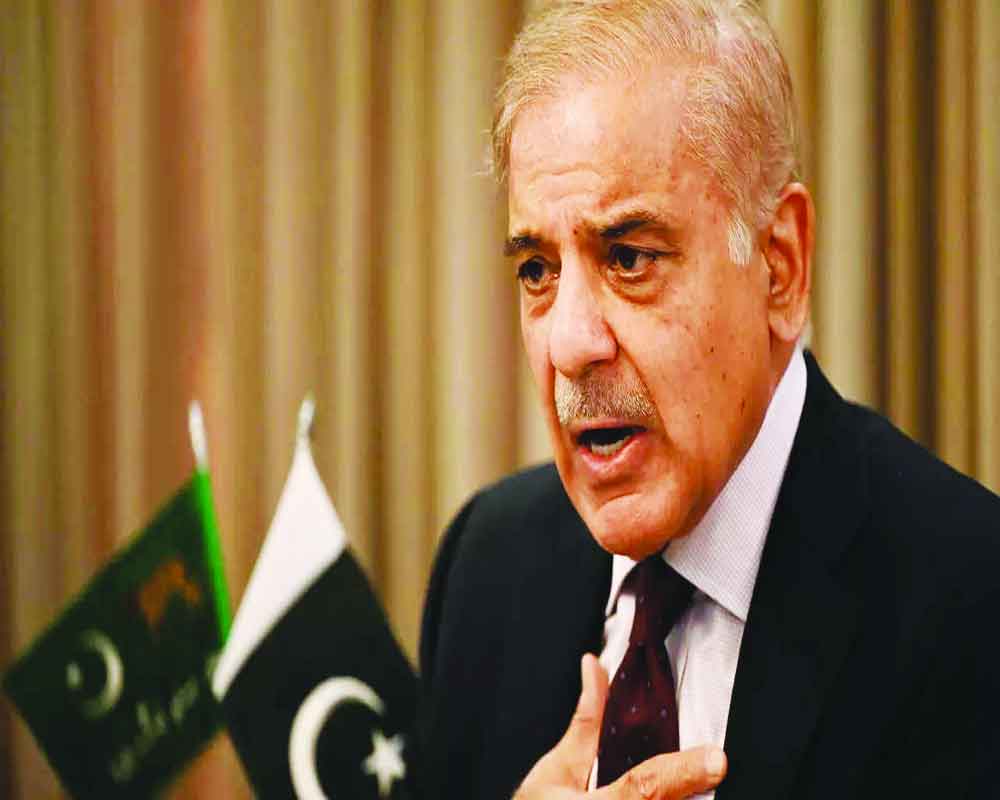We tolerated terrorist violence for many years but when we could no longer tolerate it, we went to Parliament to do away with Article 370. But we did not resort to violence
Dear Vazir-e-Azam Shehbaz Sharif Sahab, I have taken the privilege of writing to the Prime Minister of our neighbouring country, which, till 76 years ago, was part of us, but separated in acrimonious circumstances. I’m sure that you’re aware, as a lot of in India are, that this separation and the aftermath it gave rise to continues to not only cast its shadow over the subcontinent but also torment relations between various communities. This open letter to you is a humble attempt, not to hark back to the events of those decades and apportion blame, but to address the contentiousness of modern-day issues that continue to trail in their wake.
Whenever the issue of Ayodhya, the Gyan Vapi temple (Varanasi) or the Krishna Janmabhoomi (Mathura) comes up, my mind travels to Lahore and the Gurudwara Shaheed Gunj at the Naulakha Bazar locality of your splendid city. The ownership of the place was disputed by the local Muslims who claimed that the place had originally been a mosque. It had been converted into a gurudwara by the local Sikhs during the reign of Maharaja Ranjit Singh. When opportune in the 19th century, the people of the city, led by some Muslim Leaguers, went to court over this. They did not win their case for the re-conversion of the gurudwara into a mosque.
Legal counsel argued that an appeal could be filed if necessary, right up to the Privy Council. However, the then premier of Punjab Sir Sikandar Hayat Khan advised against any further action as it might open a Pandora’s Box across the subcontinent, which was then undivided. Sikandar Hayat also advised against any further litigation.
Any use of the argument of adverse possession might cause the return of many of the temples that had come into Muslim possession. What was then perhaps overlooked was that a Hindu temple is a residence of the divine and not merely a prayer hall. The pratimas (icons) are the first step in the quest for spirituality.
Ultimately, spirituality can be active by having a darshan of the avatar of the divine. In Sikhism, they do not have an icon nor the scope of spirituality in the same way as in a Hindu temple. Prophet Moses, the founding prophet of Judaism, the first of the three Semitic religions-also called Religions of the Book-known in Islam as Hazrat Moosa, had expressly forbidden any idol worship by the second of his Ten Commandments; “Thee shall not make any gravel image of thy lord the god”. Your faith has rigidly adhered to this particular Commandment.
However, it does pain me no end to state that you have carried this adherence way too far. In your country, over 75 temples have been desecrated or pulled down after independence in 1947, a sordid trend that is continuing. From my Urdu teacher who was a scholar, I have learnt that it is your bounden duty as a momin (believer) to desecrate buts (idols) installed by kafirs (infidels). But for the sake of friendly relations between us two neighbours, your people should desist from such desecrations. I am saying this after accepting the fact that Islam detests parasti (idol worship) and insists on majahab parasti (adherence to the faith) alone. But we live in a world where adherents of other religions too have equal rights to profess and practice their faith, without hurting others. I appeal to you to care for our sentiments and not target the temples and idols that still survive.
Political leaders of your generation might still find comfort in the notion that Indians are a peaceful, and also dormant, lot and therefore won’t react much. That might indeed have been the case till a couple of decades ago but is no longer so. India and Indians are changing. Real change in our civilizational journey was heralded in December 1992, of which I was fortunate to be a humble part.
In India, we have begun a movement to restore the temples that were casualties of the medieval age. I shall shortly be writing to Madam Sheikh Hasina, Prime Minister of our eastern neighbouring country. Dozens of temples continue to be desecrated in her country every year. You would agree that good neighbours do not hurt each other. Kindly, remember that there are thousands upon thousands of mosques built upon the ruins of ancient temples. So far, we have preferred to approach the courts of law and minimize unilateral action. I appeal to you to also eschew violence.
In Kashmir too, over 130 temples were attacked and desecrated even as India continued to hold control over the state’s territory. I am aware that Pakistan took great umbrage when we abrogated Article 370, but is it any wonder that we had to do so? We tolerated terrorist violence for many years, but when we could tolerate it no longer, we went to Parliament to do away with Article 370. But you would certainly appreciate that we did not resort to violence even on this issue. Our Muslim compatriots are cooperating to a moderate degree, even in the state of Kashmir. This is a trend which we hope continues.
(The writer is a well-known columnist, an author and a former member of the Rajya Sabha; views are personal)
























